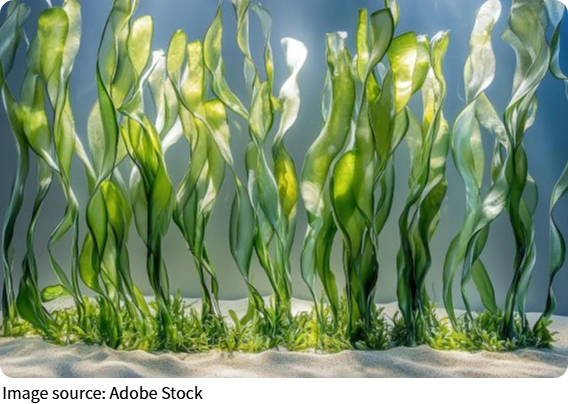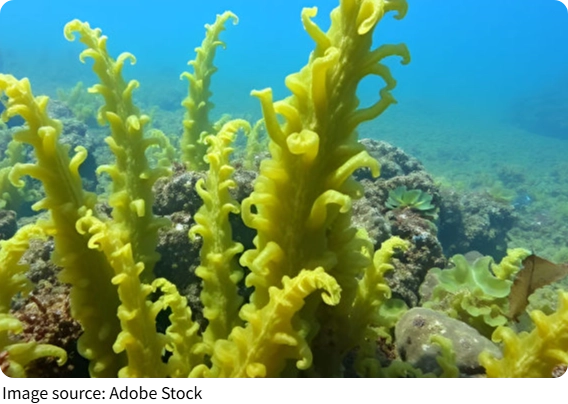Seaweed's Sustainable Power

We often enjoy seaweed in our dishes, whether it's sushi, salads, or soups, but did you know that seaweed is much more than just a tasty snack? Beyond being a nutritious food, seaweed has emerged as an important environmental resource, especially in the context of sustainability.
It's not just about what's on our plates anymore—seaweed is becoming a key player in addressing some of the planet's most pressing environmental challenges.
Water Absorption and Natural Decomposition
Seaweed boasts remarkable characteristics, particularly its ability to absorb water effectively and break down naturally in the environment. This makes it an excellent material for environmentally friendly products. Not only does seaweed contribute to sustainability by being biodegradable, but it's also a low-impact material that doesn't leave harmful residues behind. This makes it a powerful alternative to plastics and other materials that can take centuries to break down.
Health Benefits Galore
Let's talk about health benefits, which are one of the reasons seaweed is so beloved. Seaweed is packed with essential nutrients, particularly iodine, which helps support thyroid function. It's also a great source of dietary fiber, which is essential for digestive health. But the benefits don't stop there. Seaweed has been shown to help regulate blood sugar levels and prevent cardiovascular diseases. With all these benefits, it's no surprise that seaweed is becoming an essential part of healthy diets worldwide.
Seaweed as a Carbon Capture Tool
One of the most exciting environmental roles of seaweed is its ability to absorb carbon dioxide. During photosynthesis, seaweed takes in CO2, effectively acting as a natural carbon capture tool. This process not only contributes to the carbon cycle but also helps to store some of the carbon in the ocean. In addition, seaweed helps improve the oxygen levels in water and purifies the water by filtering out pollutants. This means seaweed is not only a carbon sink but also contributes to cleaner, healthier ecosystems.
Seaweed in Sustainable Products
Thanks to its versatility and eco-friendly nature, seaweed is increasingly being used in a variety of sustainable products. From seaweed diapers and sanitary pads to seaweed-based fibers for clothing and packaging materials, the applications are growing rapidly. These products are contributing to a reduction in carbon footprints during manufacturing processes and a decrease in the use of harmful chemicals. Most importantly, these products are biodegradable and can turn into compost, making them a safe, eco-friendly alternative to traditional materials.

Seaweed's Future in Sustainability
Looking ahead, seaweed offers a promising solution to some of the world's sustainability challenges. As the demand for sustainable living grows, the use of seaweed in various products and applications will likely expand. It's not just about cleaner oceans and reduced pollution; seaweed is a bridge to a future where we can balance environmental care with daily convenience. We can already see the immense potential for seaweed to support a wide range of industries in becoming more eco-conscious and resource-efficient.
Conclusion: Embracing Seaweed's Role
In the face of global environmental challenges, seaweed is showing us how nature can offer solutions to our most pressing issues. From carbon capture to water purification, its benefits go beyond what we ever expected. As we continue to look for ways to live sustainably, seaweed is proving to be a valuable ally in reducing pollution and improving our ecosystems. So, let's embrace the power of seaweed and explore how we can use it to help create a more sustainable world for future generations.
We hope you're as excited as we are about seaweed's incredible potential, Lykkers! Let's start thinking about how we can incorporate more eco-friendly options like seaweed into our lives. Have you ever tried using seaweed-based products? Let us know your thoughts!


